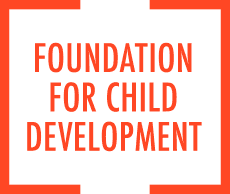All Quality of Professional Practice Resources (cont'd)
- A Shared Vision for Transforming the Workforce
In April 2015, the Institute of Medicine and the National Research Council released the report Transforming the Workforce for the Children Birth Through Age Eight: A Unifying Foundation (IOM/NRC Report). We view this report as the blueprint for the Foundation for Child Development’s work to support the preparation, competency, well-being, and on-going professional learning of the ECE workforce.
October 21, 2016 • Read MoreNew York City Early Childhood Research Network SummaryThis two-page brief explains the formation of the New York City Early Childhood Research Network Summary and current studies examining the early care and education workforce within New York City’s Universal Prekindergarten Program.
October 18, 2016 • Read MoreTransforming the Workforce for Children Birth Through Age Eight: A Unifying FoundationThis full report discusses the implications of child developmental science for early care and education professionals in terms of necessary competencies and practices, as well as the systems change needed to better support the preparation, competency, professional development, and compensation for the early care and education workforce.
October 18, 2016 • Read MoreAn Ocean of Unknowns: Risks and Opportunities in Using Student Achievement Data to Evaluate PreK-3rd Grade TeachersAs of 2012, 20 states and DC require evidence of student learning to play a role in evaluating teacher performance.
May 21, 2013 • Read MorePreK-3rd: Getting Literacy Instruction RightPreK-3rd: Getting Literacy Instruction Right, the ninth in the FCD series of Policy to Action Briefs outlines the elements of strong PreK-3rd literacy instruction including: what high-quality instruction looks like,what supports enable teachers to carry out strong literacy instruction, and what policies enable schools to carry out strong PreK-3rd reading instruction.
May 16, 2013 • Read MoreWatching Teachers Work: Using Observation Tools to Promote Effective Teaching in the Early Years and Early GradesThis report from the New America Foundation by Lisa Guernsey, and Susan Ochshorn, argues for improving early education through teacher reform.
January 6, 2012 • Read MoreA FirstSchool Framework for Curriculum and InstructionMany curricula can be used successfully in pre-kindergarten and elementary classrooms.
September 10, 2010 • Read MoreSign up for The Learning Curve
Stay up-to-date with the latest resources and insights coming from the Foundation for Child Development and its colleagues. We do not share or sell email addresses or any other information collected to outside parties. We will use your email address only to send you relevant content, and you can unsubscribe at any time.
